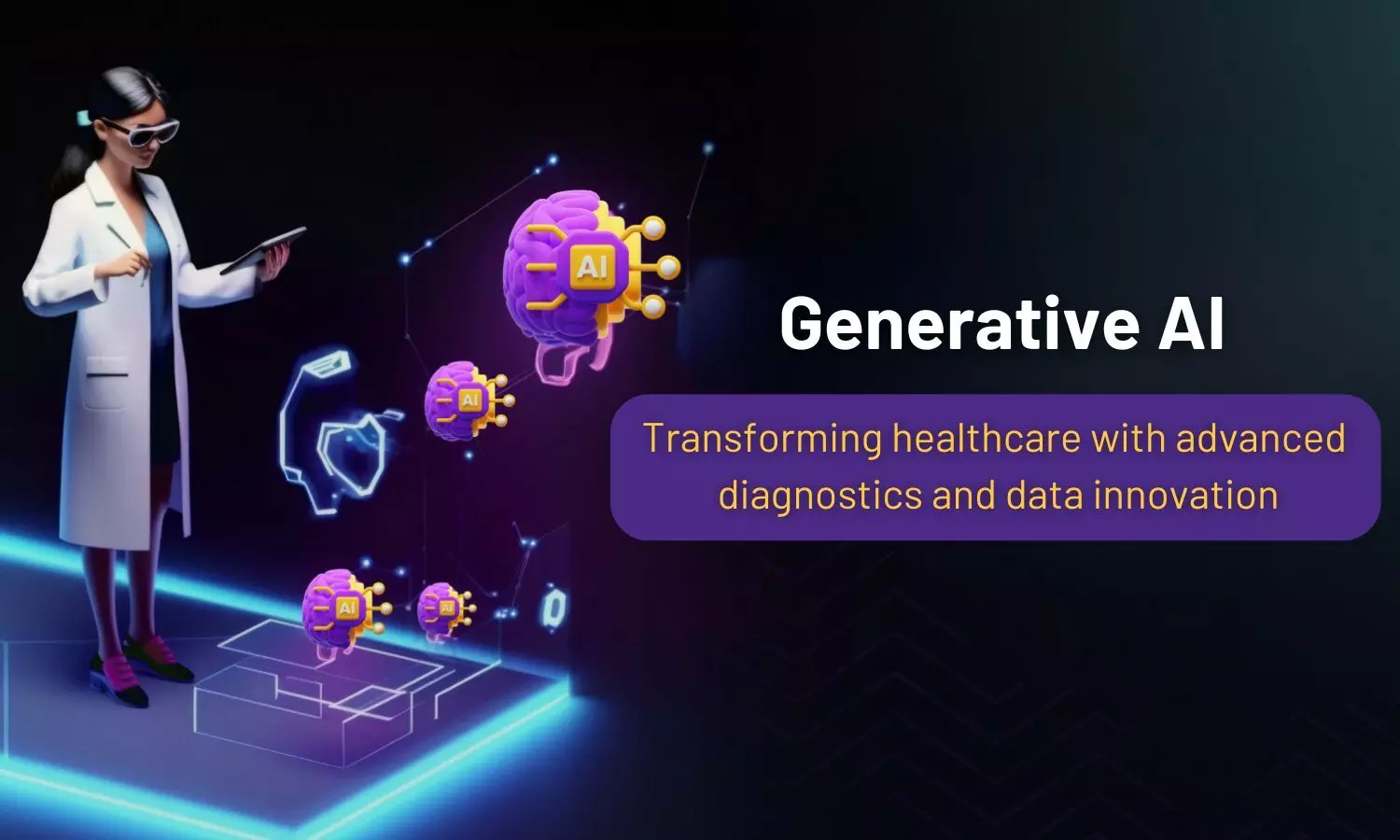Generative AI: Transforming healthcare with advanced diagnostics and data innovation
Generative AI is revolutionizing healthcare, enhancing diagnostic tools, and creating new data. Its advanced technology is empowering doctors, researchers, and patients.
Generative AI: Transforming healthcare with advanced diagnostics and data innovation

Generative AI in Healthcare System and its Uses
The ability to control a computer or tablet with just your thoughts?—it sounds like something straight out of a sci-fi movie, doesn’t it? Yet, thanks to Neuralink, the brain chip startup founded by Elon Musk, this incredible concept is becoming a reality. Recently, Neuralink hit a significant milestone—they successfully implanted their device in a second patient, marking another step forward in their mission to help paralyzed individuals regain control over their digital lives.
This second patient follows in the footsteps of 28-year-old Norland Arbaugh, who was the first to receive the implant. Neuralink’s device is designed to help people with spinal cord injuries control digital devices, like computers and tablets, using only their thoughts. It’s a revolutionary idea that could completely change how those with paralysis interact with the world around them.
In a tight race for innovation, Generative AI is reshaping the healthcare industry, elevating it to new heights with its transformative capabilities. Advanced AI technology helps doctors, researchers, and patients alike by creating new data, enhancing diagnostic tools, and even speeding up the discovery of life-saving drugs. This is the promise of generative AI.
Experts predict a staggering annual growth rate of 35.14% over the next decade, with the market expected to surpass $21.74 billion by 2032. This technology is becoming an integral part of the future of healthcare.
One of the most exciting aspects of generative AI is its potential to change how healthcare operates. Large language models like this one can be used to lighten the administrative load on healthcare professionals, freeing them to focus on more critical tasks. By automating routine processes like scheduling appointments, documenting patient records, and even managing billing and claims, AI is transforming the behind-the-scenes work that keeps healthcare systems running smoothly.
But the potential of generative AI doesn't stop at administrative tasks. It's also making waves in medical imaging, where it helps enhance image quality, reduce noise, and even generate synthetic images that aid in medical education. This means doctors can see clearer, more detailed images, leading to more accurate diagnoses and better patient outcomes.
In drug discovery, generative AI is proving to be a game-changer. It can sift through vast amounts of biological data to identify potential drug targets, generate novel chemical compounds, and predict how different drugs might interact with each other. This not only speeds up the development of new drugs but also makes the process more efficient and targeted.
Medical research is another area where generative AI is making a significant impact. By quickly processing large volumes of data and summarizing complex medical documents, AI is helping researchers stay on top of the latest developments. It even helps predict future trends in medical research, allowing scientists to be proactive rather than reactive.
The potential of generative AI extends to personalized medicine, where it helps tailor treatments to individual patients based on their unique genetic makeup. This approach leads to more effective treatments and better patient outcomes. AI also plays a crucial role in predicting and preparing for pandemics by analyzing real-time data to detect early signs of emerging diseases and helping optimize vaccine development and distribution.
Generative AI is also paving the way for the creation of synthetic medical data, which is incredibly valuable for training and testing new healthcare technologies without risking patient privacy. This allows for the development of more accurate and reliable AI models that can be safely deployed in real-world healthcare settings.
Despite all these advancements, the adoption of generative AI in healthcare does come with its challenges. Ensuring data privacy and security, fostering collaboration between AI specialists and healthcare professionals, and mitigating biases in AI models are all critical considerations. It's also important to design user-friendly AI systems that integrate seamlessly into existing healthcare workflows, and to provide ongoing training and education for healthcare professionals to keep them up to date with the latest AI developments.
As the healthcare industry continues to embrace generative AI, it's clear that we're on the brink of a new era of innovation. This technology has the potential to revolutionize how we approach healthcare, leading to better patient outcomes, more efficient processes, and a brighter future for all.

